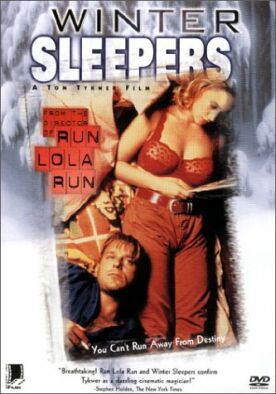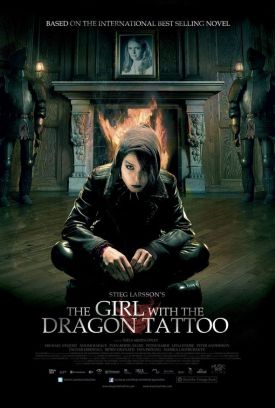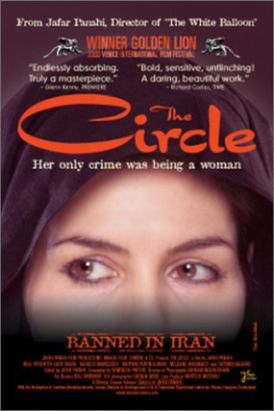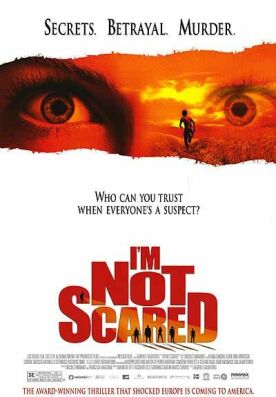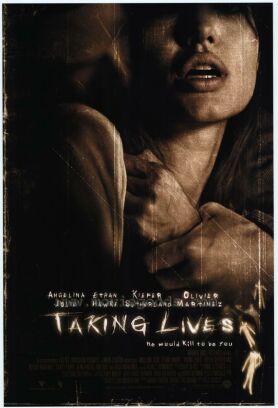Hurricane, The
In The Hurricane, Norman Jewison is going through the motions. His
film takes an ostensibly true story which also conforms to a classic movie
situation—a man condemned for a crime he did not commit—and allows our
expectations to do all the work. Rubin “Hurricane” Carter (Denzel Washington)
was a top middleweight contender in the mid-1960s when he was arrested and
sentenced to three life terms for the execution-style murders of three people in
a bar in Paterson, New Jersey. We are given to understand from the beginning
that he was framed for the crime by a detective-sergeant called Della Pesca (Dan
Hedaya) on the Paterson force—a made-up character with no counterpart in real
life—who had had it in for Carter since he was an 11-year old boy sent to
reform school for stabbing a white man who (so we are told) was trying to kill
him.
Well, the stabbing is explained by the movie. The guy had been sexually
propositioning one of Rubin’s more naïve 11-year old friends and Rubin had
attempted to warn the friend off by hurling a bottle at the man. Enraged, he had
caught Rubin, dragged him to the edge of a cliff and was on the point of
throwing him off when Rubin managed to open his little jack-knife and stab him.
That he should have been sent to reform school until he was 21 seems a monstrous
injustice and entirely the result of Della Pesca’s irrational hatred. But where
does that hatred come from? Very well, it is racism, but why this little black
boy rather than some other? The next time we see Rubin he is home on leave from
the army. His first day back he is arrested, again by Della Pesca, though we are
not told for what. He is sent to prison again. More racism, I guess.
In prison he becomes a lean, mean fighting machine. “My body was a weapon,”
he tells us in voiceover. He comes out and starts cleaning up in the
middleweight division. His successes are only marred by a title bout in
Philadelphia in 1964 against the white champ, Giordano, which he clearly won,
though the judges gave it to the other man. More racism. Meanwhile, someone is
hurling bricks through his windows at night. Who? Why? We aren’t told. But it
doesn’t matter, presumably, because if it’s not Della Pesca or a Philly fight
judge it’s bound to some other racist. Finally comes the shooting in the
Lafayette Bar and Grill. Carter happens to be going home in a car that is sort
of like the car used by the killers, according to witnesses. Because he’s been
drinking, a friend is driving him.
“Sorry, Rubin,” says the cop who stops him. “I didn’t realize it was you.
We’re looking for two Negroes in a white car.”
“Any two will do?” asks Hurricane.
Suddenly a bunch of other cop cars arrive. Della Pesca turns up. Soon he is
browbeating and blackmailing witnesses to finger Rubin as the guilty man. Away
goes Rubin to prison for the rest of his natural life. That old debbil racism
strikes again.
One needn’t be taken as denying the seriousness of racism in general or in
the case of Rubin Carter in particular in order to express a doubt as to whether
portraying it either as a single malign but fictional character or as a vague
miasma responsible for all the Hurricane’s problems is good enough to sustain a
nearly two and a half hour movie. Moreover, the vagueness about Della Pesca’s
racially motivated vendetta is echoed in the portrayal of all the other
characters in the film. Rubin, of course, is wholly admirable (in real life he
was rather less so), but he is the only character we feel we have come to know
at all by the end—and without knowing those around him, how can we even know
him?
Worst of all are the three Canadian hippies and their Brooklyn-born black
protégé Lesra Martin (Vicellous Shannon), who come to the
Hurricane’s rescue in the end. There have been several protests from those
involved with the case that the hippies’ contribution to his ultimate
exoneration has been absurdly exaggerated, and dark hints as to the cultish
nature of their subsequent influence on him. But even if they had been the
disinterested paragons which the film represents them as being, they might as
well have been angels from heaven for all that we know of them as human beings.
Even Lesra Martin is little more than a ghetto cliché.
Doubtless the real Lesra, along with the hippie Canucks and Rubin himself are
all every bit as splendid as here they are portrayed as being. But when a
filmmaker simply asks us to take their goodness, like the badness of their
enemies, on faith, you know he hasn’t been doing his job. Like Angela’s
Ashes, The Hurricane is a movie which repeatedly bashes us over the
head with the authenticity of the real-life sufferings of its principal
character, thus hoping to disarm any criticism of its cinematic shortcomings. We
should not allow ourselves to be blackmailed in this way.
Discover more from James Bowman
Subscribe to get the latest posts to your email.


